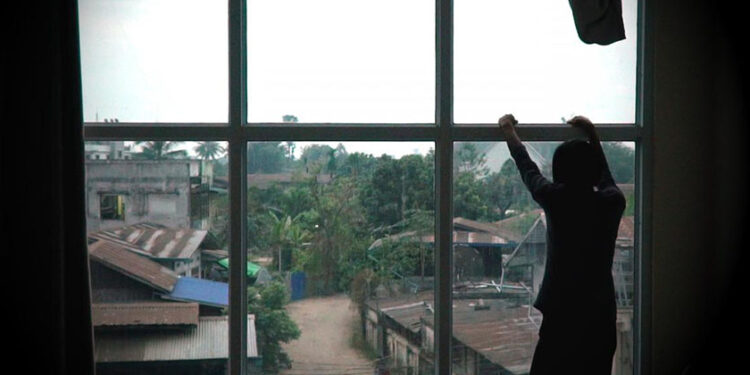YANGON—Women and girls in northern Myanmar are being trafficked to China as “brides” at prices ranging from US$3,000 to $13,000 (about 4.5 to 20 million kyats), with the complicity—and often for the financial benefit of—police on both sides, Human Rights Watch said.
HRW’s new report “‘Give Us a Baby and We’ll Let You Go’: Trafficking of Kachin ‘Brides’ from Myanmar to China,” includes harrowing accounts of sexual slavery from 37 Kachin and Shan women who escaped back into Myanmar after being trafficked into China.
They recalled that people they trusted—even family members, including a sister-in-law—lured them across the border with job offers. When in China, they found themselves being locked up and raped until they were pregnant.
Myanmar’s Kachin and eastern Shan states share a border with China. The area has long been socially and economically unstable due to decades of war between autonomy-seeking ethnic armies and central government troops. With many men in the ethnic areas involved in the fighting, women are forced to become breadwinners for their families—often after being settled in internally displaced camps along the porous Chinese border.
HRW’s Heather Barr said plenty of employers in China are willing to hire people from Myanmar, and this situation creates a huge opportunity for traffickers. Usually, someone in Myanmar tells a woman they know a farm or a restaurant that needs workers. Often these jobs are real, but sometimes they’re not.
“Most of the 37 women and girls we interviewed accepted these types of jobs. But the people who recruited them turned out to be traffickers who sold them to Chinese families,” she said.
HRW’s acting women’s rights co-director explained that a serious gender imbalance in China, driven in large part by the country’s one-child policy, is the main factor fueling bride trafficking. In China, sons traditionally stay with their parents and support them in old age, while daughters live with their husbands and in-laws, creating an incentive to ensure that your only child is a son.
“Today there are 30 to 40 million more men than women in China. So many men have had a hard time finding wives, creating a demand for trafficked brides,” she added.
She said Myanmar and Chinese authorities look the other way while unscrupulous traffickers sell Kachin women and girls into captivity and unspeakable abuse.
While trafficking is illegal in both countries and there have been some attempts on both sides to stop the trade, HRW said most of their interviewees escaped on their own. The group reported hearing many stories of police on both sides of the border being complicit in trafficking, and even benefiting financially.
Some victims’ families had repeatedly gone to Myanmar police—including anti-trafficking police—but no action had been taken. Chinese police take little action against traffickers and often treat the women and girls as criminals for violating immigration law.
“In one case we learned about, the Chinese police demanded a US$800 bribe from the family the woman had escaped from, and then handed her back to them,” Barr said.
On Anti-Human Trafficking Day last year, Myanmar police said there had been no decline in the number of human trafficking cases in recent years, and that “a new form of trafficking had emerged”.
They said Chinese men now legally marry Myanmar women before selling them in China, and in some cases even force them to act as surrogate mothers.
















